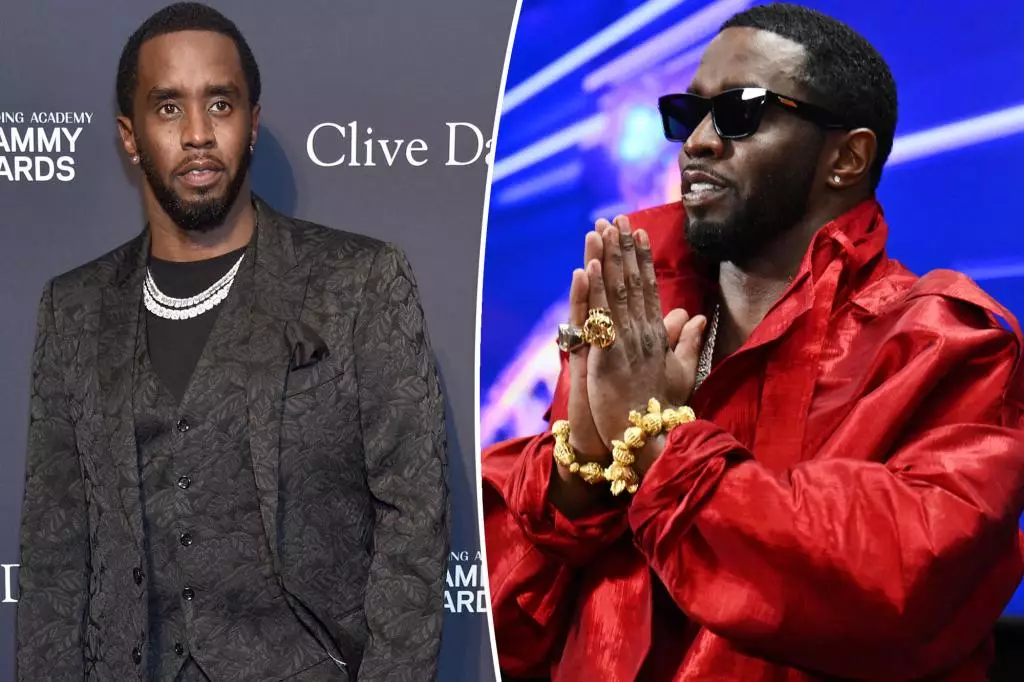In a dramatic turn of events, jury selection for Sean “Diddy” Combs’ much-publicized racketeering and sex trafficking trial has been postponed until early next week. This postponement is not merely a procedural bump in the road; it signifies the tension and unpredictability lurking beneath the surface of a case that could change the landscape of the hip-hop industry as we know it. As the clock ticks down to the opening arguments, the delay highlights the strategic maneuvers of the defense as well as the complexities of prejudicial material that could sway a jury’s decision. The federal judge overseeing the case, Arun Subramanian, has acquiesced to a request from the defense, indicating how vital this selection process is for both sides and setting a flutter of anticipation among observers.
The implications of this delay are profound. Initially, the jury selection was expected to unfold seamlessly, narrowing down a pool of 45 prospective jurors to just 12 plus six alternates. Yet the hiccup throws into question the overall efficiency and perceptions of this high-stakes trial. For the defense, it is crucial time to gather a jury that they believe possesses the ability to remain impartial amidst the sensationalism surrounding the accusations. For the prosecution, it becomes yet another opportunity to assess how to best dismantle the strong façade that Diddy has built over decades.
Charges Laid Bare: The Nature of Allegations
At the heart of this case lie grave allegations. Combs is accused of using his celebrity status to exploit women sexually from 2004 to 2024, creating a culture of fear and abuse that permeates through the alleged victim’s narratives. The indictment details particularly disturbing accounts, including forced sexual encounters that involved drugs, violence, and dehumanization. Descriptions of “Freak Offs” provide an unsettling glimpse into this alleged world of exploitation, where women were coerced into acts with male sex workers while being subjected to Combs’ cameras. This vivid imagery not only paints a troubling picture of the mogul’s actions but also sets a tone of moral bankruptcy that contradicts his public persona as a successful artist and entrepreneur.
Equally alarming are the physical abuse charges, with accounts of extreme aggression supposedly employed against victims—choking, hitting, and dragging them—shedding light on a darker side of a figure known for his contributions to music. The gravity of such accusations raises important questions about culpability, public persona, and the legal ramifications of actions that have long remained hidden in the shadows of fame.
Public Scrutiny: The Challenge for Jurors
During the initial days of jury questioning, prospective jurors were subjected to the harrowing task of introspection. They were asked whether they could detach their emotions from videos of violence—specifically a notorious 2016 incident involving Combs assaulting a former girlfriend. The haunting visuals and testimonies undoubtedly evoke powerful responses. Many potential jurors withdrew due to their inability to remain objective, illuminating the challenge of creating a jury capable of evaluating evidence without bias. This raises ethical questions about the legal system’s ability to ensure fairness in high-profile cases where media exposure runs rampant.
The juror selection process itself becomes a critical touchpoint in this unfolding drama, not purely as a means to an end, but as a reflection of societal change. As discussions abound over sexual consent and the boundaries of power dynamics, the ability for jurors to assess these qualities without prejudice becomes a daunting task.
The Defense’s Strategy: A Twist of Consent
The defense’s argument pivots on the assertion that the prosecutors aim to criminalize what they claim are consensual relationships between adults. This defense strategy introduces a controversial narrative that seeks to redirect the conversation about consent, intent, and personal choices. Acknowledging Combs’ substance abuse history, lawyers contend that addiction should not denote criminality. While facing troubling revelations, they attempt to humanize their client, yet the portrayal risks polarizing public opinion further.
Moreover, by framing the discourse around consent, the defense opens the door to challenging the prosecutorial narrative that presents Combs as a predatory figure. This tactic could resonate with jurors who harbor preconceived notions about celebrity and the relationships that develop within that ecosystem—complicating an already complex case and leaving many to wonder: can justice truly be served in such a charged atmosphere?
As the trial approaches, the spotlight intensifies. All eyes remain fixed on this case that delves deeply into the interplay of power, celebrity, and the darker aspects of human nature, leaving the world to ponder not just Diddy’s fate, but the societal implications of what unfolds in the courtrooms of America.


Leave a Reply